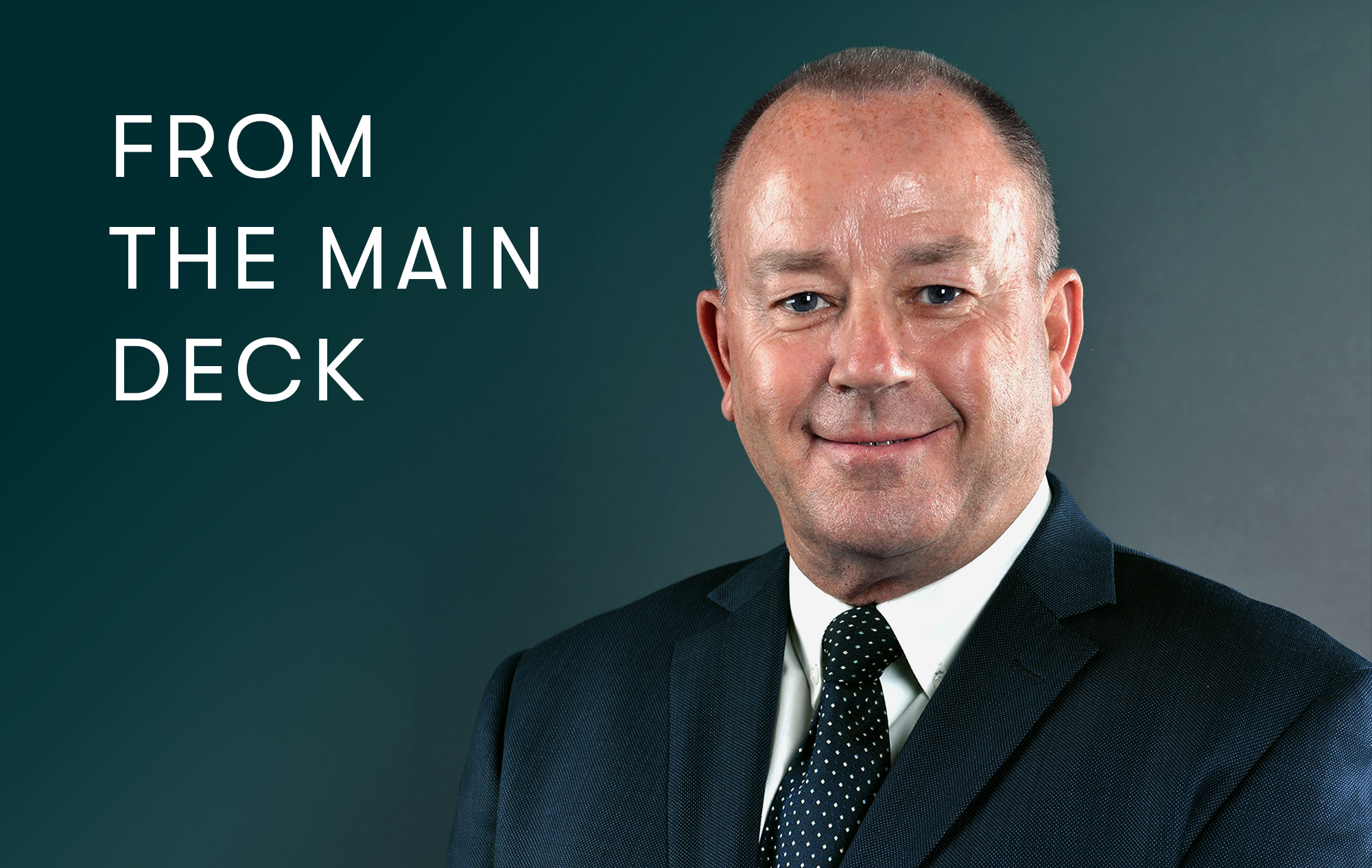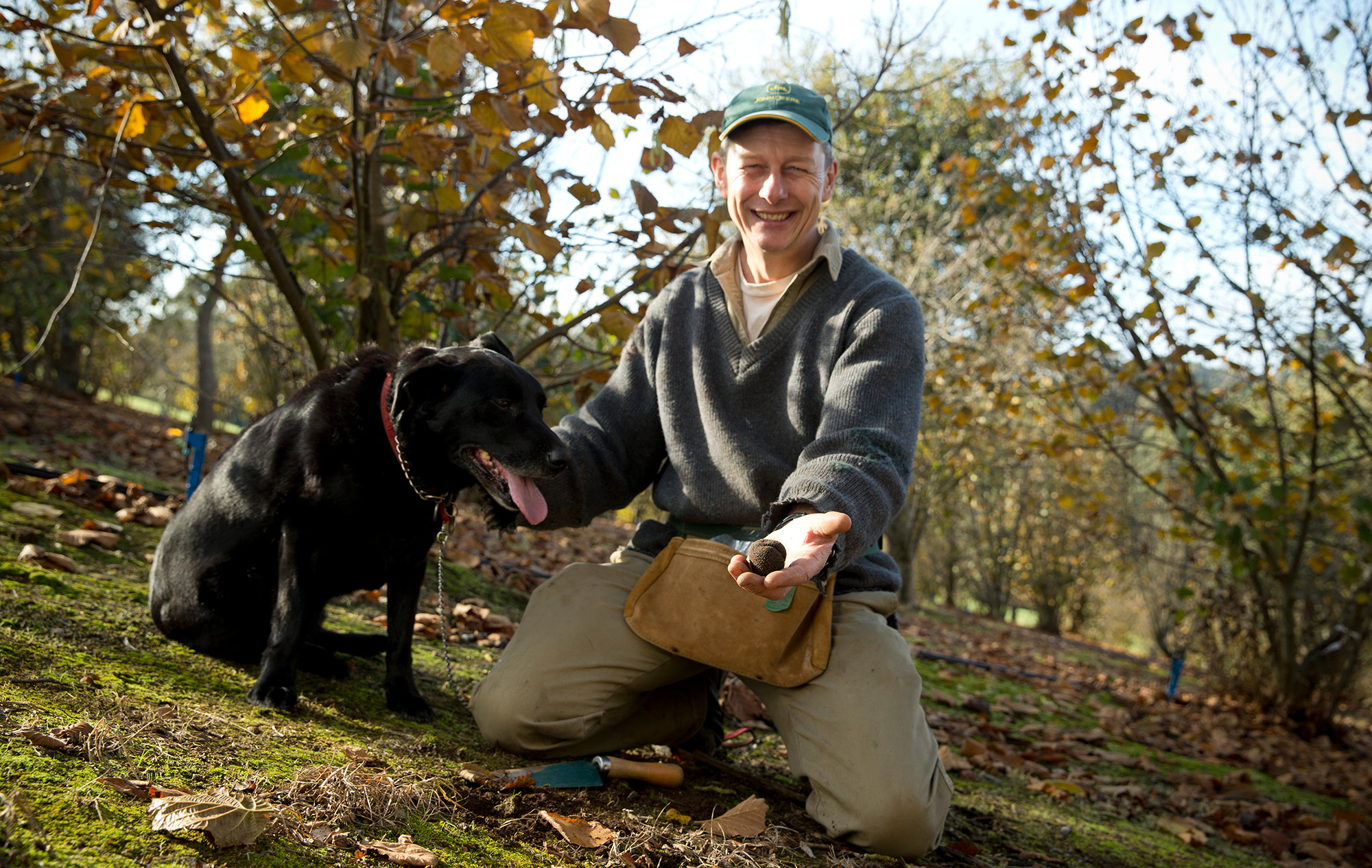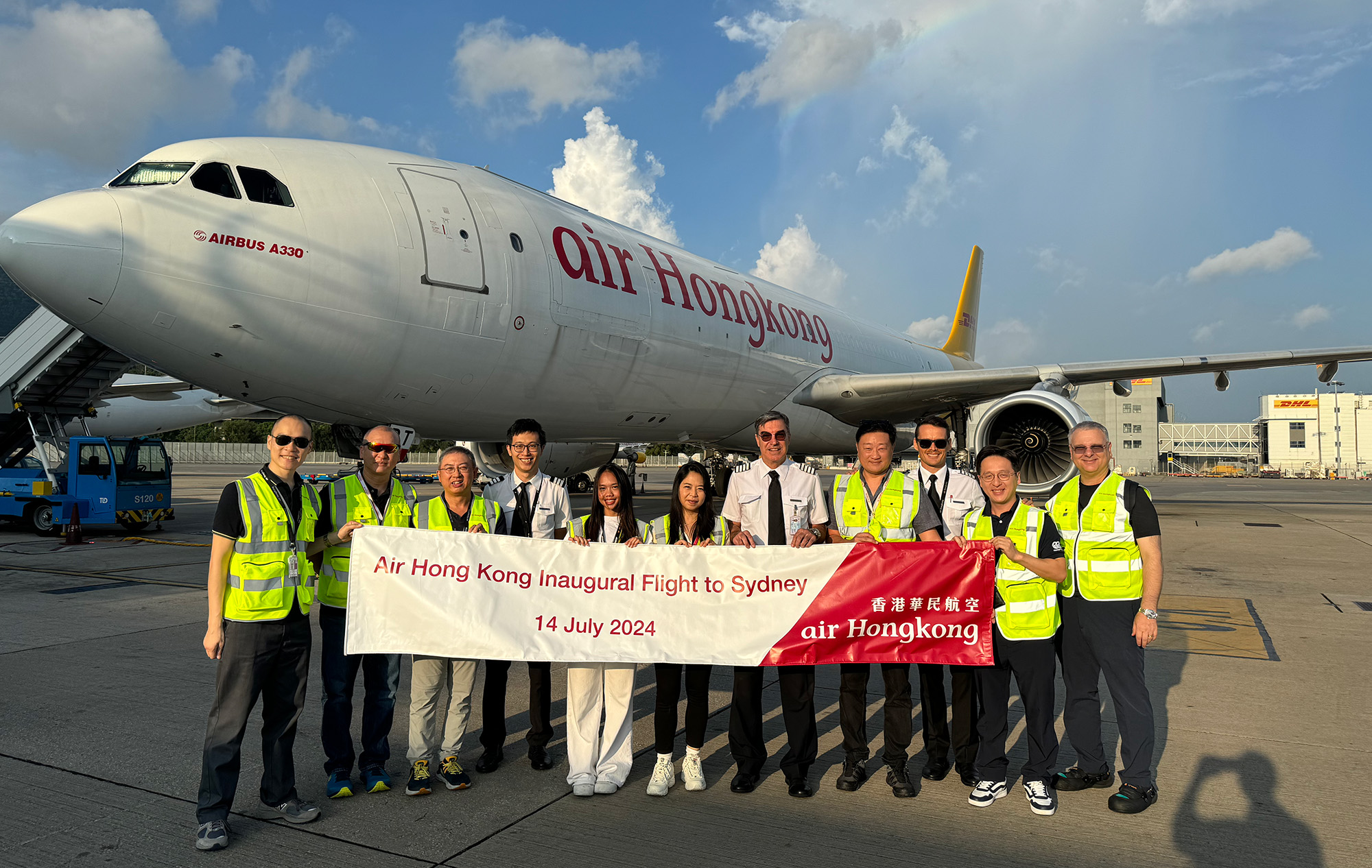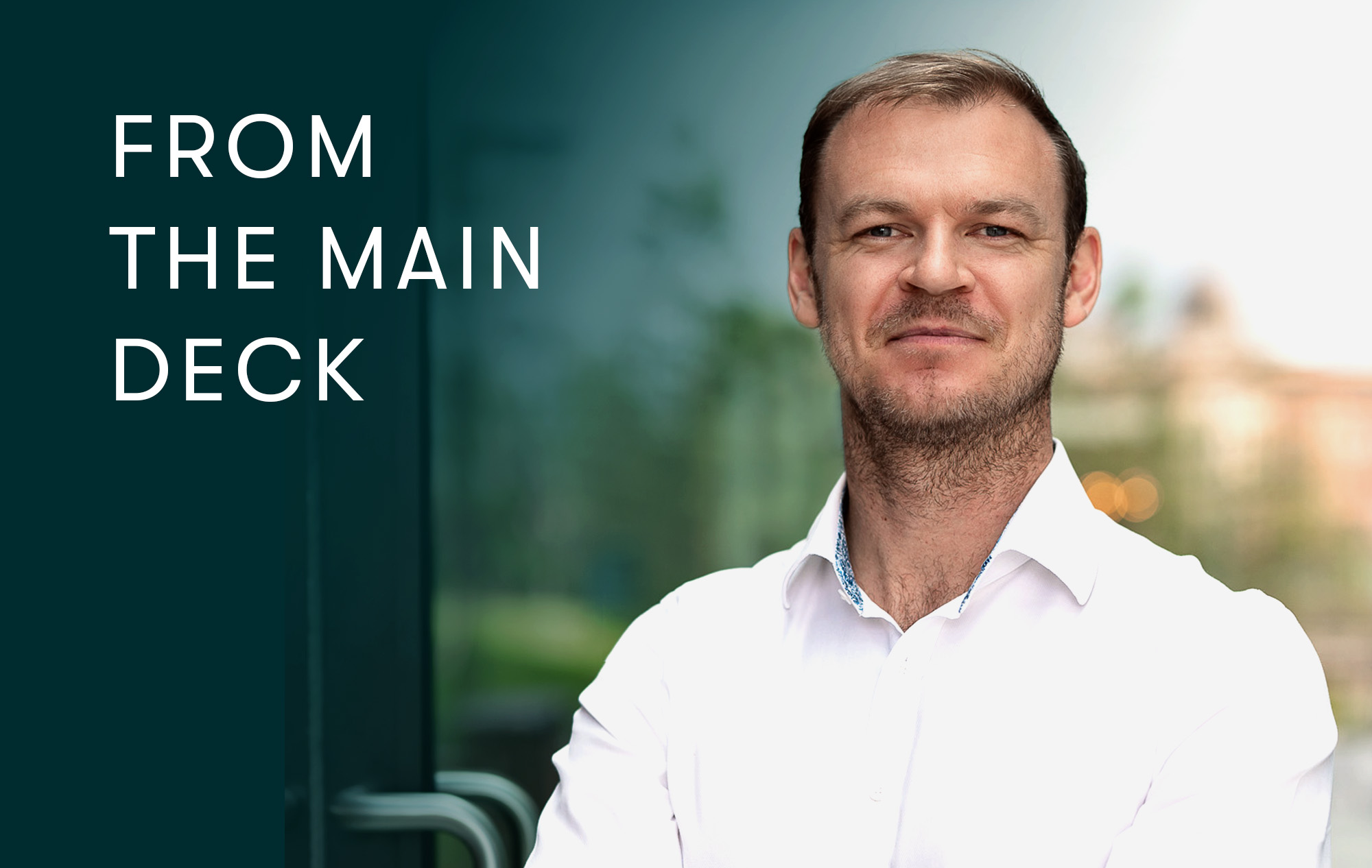What was your start in air cargo?
I started my career at Singapore Airlines on the passenger side. SIA Cargo was growing, so I switched over to support the freight business. I spent time in London and Frankfurt, as Regional Cargo Manager, Europe before heading the UK, Ireland and Scandinavia cluster.
When did you move to the forwarding side?
There was an opportunity with a US freight forwarder called BAX Global. I joined as Managing Director of Thailand. After four years, I left for another, Exel, which was then acquired by DHL. Around the same time, in 2006, DB Schenker acquired BAX and offered me a role as Schenker’s Head of Sales for Asia Pacific. I have been with DB Schenker ever since, in several capacities such as Head of Airfreight in the Americas and Global Head of Airfreight, which is my current role.
What do you like about the airfreight business?
It’s B2B, so you are dealing with business partners in business discussions and negotiations, which I like very much. There is a lot of specific knowledge and expertise required to move a piece of freight on a plane, and I got that experience from my airline background. Now, being on the forwarding side, I really see it end to end, with warehousing, customs clearance and a delivery component.
Tell us about DB Schenker’s scale and reach.
DB Schenker has 72,700 employees across all the business units. For global airfreight, we are just over 7,000 strong. We operate in more than 130 countries, with our own staff in 79 of those, and agents representing us in the others. Last year, we moved 1.15 million tonnes of airfreight globally. Our market share is six to seven per cent, and we are number four in terms of volume. The thing we are proud of is that our last major acquisition in airfreight was back in 2006 and yet we’ve been able to hold our position in the market and grow organically over the past 20 years.
What is your role?
I am responsible for everything about airfreight at DB Schenker, which means I set the business unit’s strategy to meet the overall company’s growth plans, and to ensure they are met. I am also responsible for making strategic decisions about how we approach developments on the market and, from a procurement perspective, select the carriers we work with. Our team oversees solutions that meet our customers’ requirements, and also supports me in achieving our company’s goals across disciplines and regions.
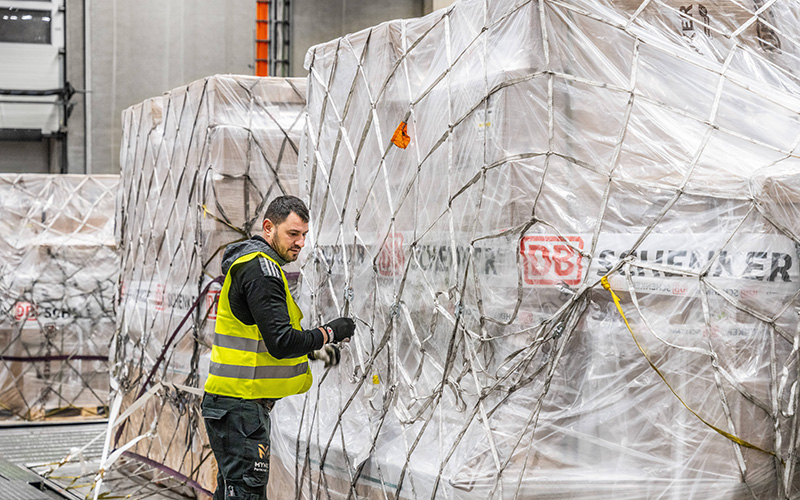
How is business at the moment, and how do you see the peak playing out?
In the first half of 2024, the airfreight market could be divided into two key segments: Traditional airfreight, and the new e-commerce business from Asia. While the traditional market only saw slight growth, the market grew at a double-digit rate when taking the e-commerce segment into account. In line with regional differences in demand and the associated imbalances in available capacities, we are seeing freight rates rising globally, with ocean-to-air conversion due to the situation in the Red Sea. For the second half of the year, I also expect an increased movement of electronic goods like smartphones and laptops as new AI-enabled devices could bolster the demand to replace devices bought in Covid times. We could be in for a busy peak season indeed.
What are your big verticals?
High tech is our largest vertical. In addition, we have got semi-con, where we transport components for the chip and server industries. We also have industrial, which is equipment, plant and mechanical components. Automotive and consumer retails are also very important for us. And finally we have an aerospace vertical, which – while smaller in size – is a strategic one.
What are your principal shipment flows?
From established brands and blue chip to SMEs – we are proud to be a trusted partner for customers from a wide range of sizes and geographies. Accordingly, we pretty much mirror the global trade flows, so transpacific, transatlantic, Europe to Asia, intra-Asia.
In an increasingly digitalised environment, how important are relationships in air cargo?
To me, working with strong partners to digitalise airfreight is super critical. A lot of businesses use other companies to provide the chips, glass and metal to make their products, and they call them suppliers and vendors. For us, we call them partners. It is a key word that conveys how closely we need to work together to find solutions and better ways to do business. Our recently launched direct digital interface with Cathay Cargo is a great example for such a close and trustful collaboration with benefits for everyone involved. API integrations enable faster, smoother and overall more suitable capacity allocations for our customers. We are thankful to Cathay Cargo for having jointly committed to digitally enhancing customer interactions.
DB Schenker joined the Cathay Corporate Sustainable Aviation Fuel Programme. Is this driven by you or your customers?
It is driven by our own objectives, because we are working on decreasing our CO2 footprint at every step of the supply chain process. Airfreight is one of the most carbon emitting segments in logistics. On the way to climate neutrality we have partnered with selected airlines and now decided to join Cathay’s SAF programme. We bring our ambitious carbon-neutrality goal to all of our customers. And for those who are far off their goals, we advise, we inform and provide guidance. SAF is part of the solution and it is readily available, not just in a far future but already today.
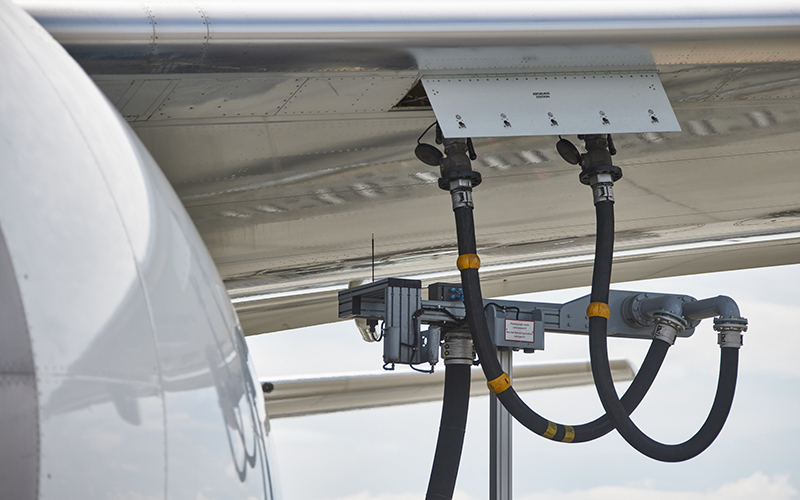
You were born in Malaysia but now live in Germany. Do you have a concept of ‘home’?
I call myself a world citizen because I have been on the road since I was a kid. My father was a diplomat, so as a child, I spent time in different countries, and moved to Singapore for high school and university. As the singer Paul Young put it: Wherever I lay my hat, that’s my home! For me it was beneficial to have experienced a diverse set of geographies on this great planet. It helps to open up perspectives and opportunities.
Tell me about your family and what you get up to outside of work?
I live in Frankfurt, and I have three kids. The eldest is 28 and he’s training to be a lawyer in the UK. The middle sister is 24 and in the UK as well – she is currently starting her acting career. The youngest has just finished her IB. She is heading for university as well, probably also in the UK. As for me, I enjoy watching football as I am a Newcastle United fan. I have been following them since 1998, when I was based in London – one of my colleagues took me to a Newcastle game and I became a believer.




